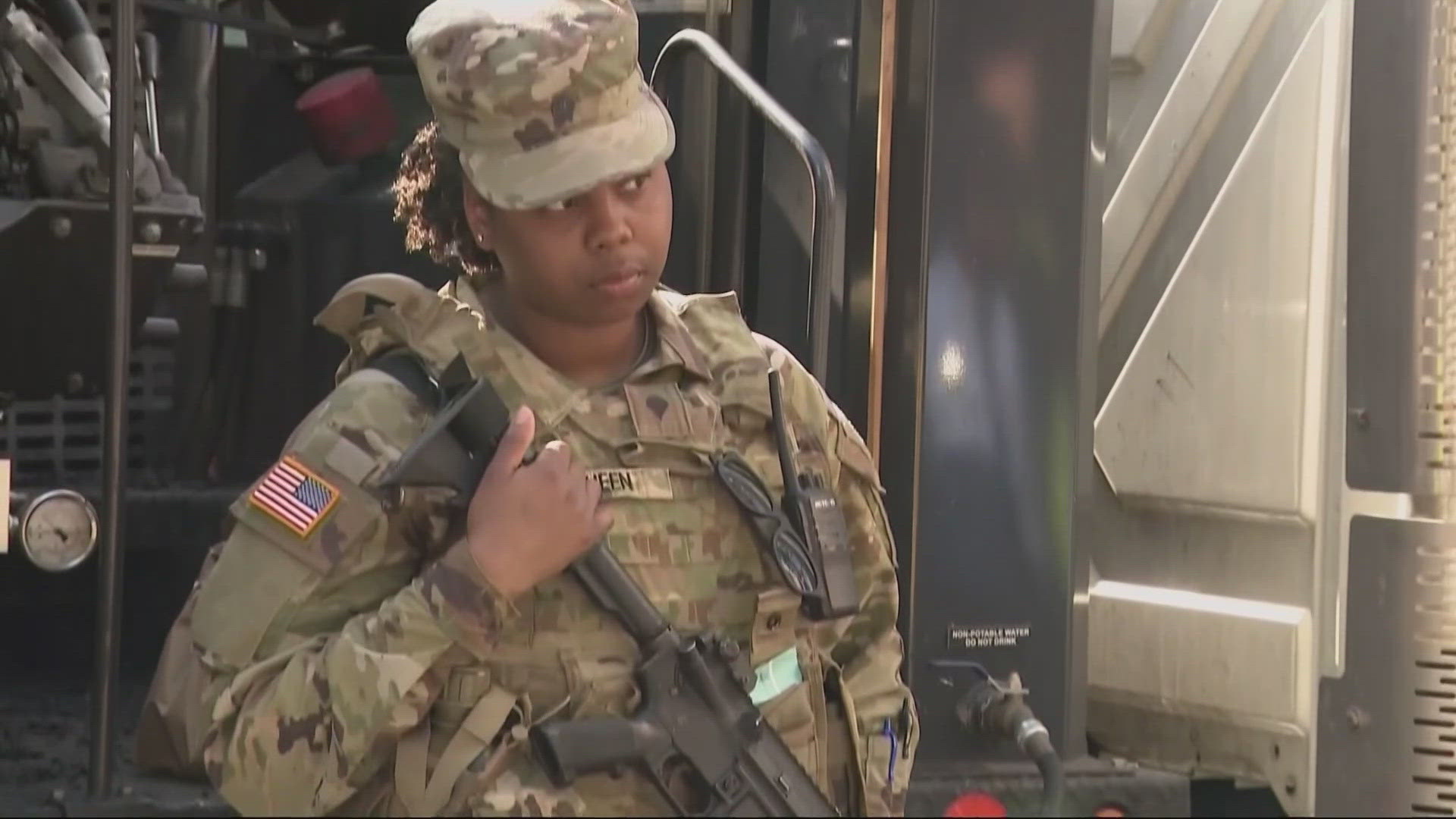A New Coalition: “Cities Together”
Community leaders from across the country announced on Tuesday that they are uniting under a new coalition called “Cities Together.” Their goal: to resist what they describe as a growing and dangerous federal military presence in American cities.
From Portland to Washington, D.C., and Los Angeles to Memphis, the coalition says deployments of the National Guard and federal law enforcement have created fear and intimidation in neighborhoods. The Trump administration, by contrast, frames the deployments as public safety measures — and even as training opportunities for the military.
Oregon Voices Lead the Pushback
Representing Oregon in the coalition, Sandy Chung, executive director of ACLU Oregon, condemned the use of troops in local communities.
Also Read
“If you send military troops against the people of the U.S., you are abusing your power and disrespecting the military and our service members, and you’re wasting our tax dollars,” Chung said.
Oregon has been at the center of the debate following weeks of protests outside Portland’s ICE facility and President Donald Trump’s decision to activate 200 Oregon National Guard troops despite opposition from Gov. Tina Kotek.
Community Leaders Speak Out
The coalition’s launch included a cross-country news conference led by Keya Chatterjee, executive director of the Free DC campaign.
“Every single time they attack our communities, we only grow stronger,” Chatterjee said.
Chatterjee and others described federal forces as an invasive presence. “Troops have been walking down neighborhood streets and waterfront parks,” she said. “Children have seen people kidnapped in front of schools.”
From California, Lydia Avila of “We Are California” said communities felt under siege. “It was a siege, they invaded our community,” Avila explained.
In Tennessee, community organizer Maria Oceja criticized the Memphis Safe Task Force, saying what was billed as an effort to enforce warrants has instead become widespread traffic enforcement by a mix of federal officers and Guard members. “They saturated the main streets of the city all to conduct traffic stops all over the city,” Oceja said.
Trump’s Defense of the Deployments
The Trump administration continues to defend the use of troops and federal law enforcement. At a recent event, the president recounted conversations with Oregon Gov. Tina Kotek, painting a grim picture of Portland.
“I said, ‘Unless they’re playing false tapes, this looks like World War II. Your place is burning down,’” Trump told supporters. “She said, ‘We have it under control.’ I said, ‘You don’t have it under control, Governor.’”
Trump has also described the strategy as part of a larger vision. “It’s a war from within,” he said. “I told Pete [Defense Secretary Hegseth] we should use some of these dangerous cities as training grounds for our military.”
Chatterjee pushed back firmly: “D.C. is not a training zone for the military. None of our communities are.”
Split Among States
Not every state is resisting. In Louisiana, Gov. Jeff Landry formally requested up to 1,000 National Guard troops through next year to help combat violent crime.
Other governors, including Oregon’s Tina Kotek, maintain their states do not need troop deployments and have asked the administration to halt them.
A Growing Battle Over Local Control
The debate underscores a widening clash between the federal government and local leaders over public safety and civil liberties.
While the Trump administration insists the surges make communities safer, members of the Cities Together coalition argue they erode trust, destabilize neighborhoods, and create lasting harm.
For now, the coalition’s message is clear: troop deployments may begin in Portland or D.C., but if left unchecked, every city could be next.












